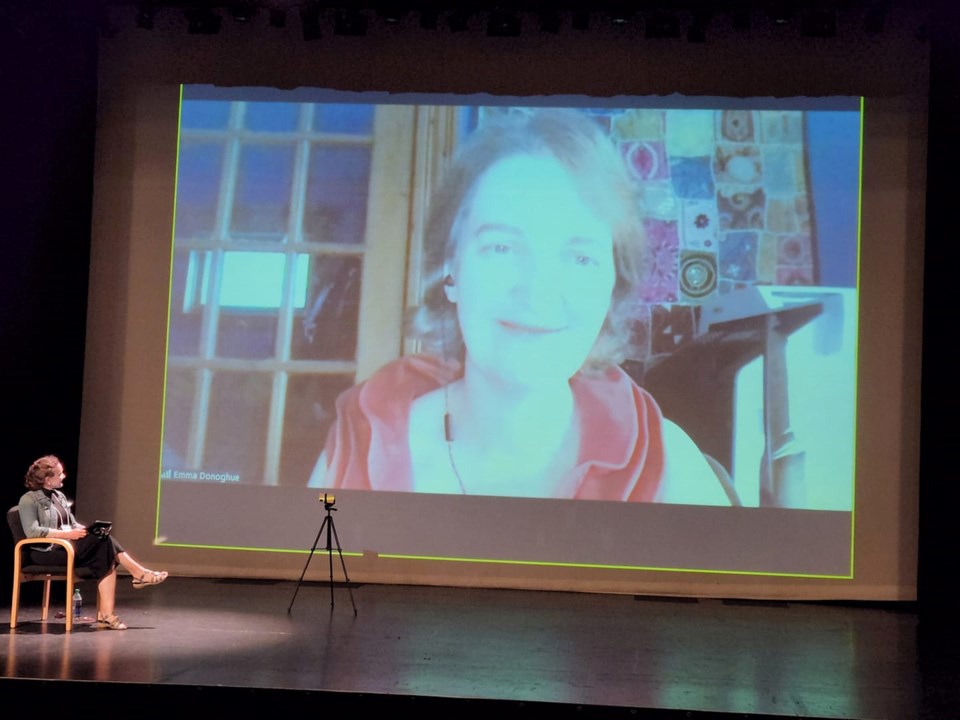Emma Donoghue is an Irish-Canadian playwright, screenwriter, literary historian, novelist, and more whose work has won awards and sold millions of copies internationally.
Her 2010 novel Room is perhaps her most famous work. Room was an international bestseller, shortlisted for the Man Booker Prize and the Orange Prize for Fiction. Donoghue adapted the screenplay for the 2015 film version of Room — and was nominated for an Academy Award, a Golden Globe, and a BAFTA as a result. Film lead Brie Larson won the Academy Award for Best Actress.
Since 1998, Donoghue has lived in London, Ontario with her wife and two children.
Author Amanda Leduc moderated the interview. Leduc began by asking Donoghue about her latest novel Haven (2022), which imagines the story of the first three people to attempt to settle on a tiny rock island off the western coast of Ireland in 600 A.D.
“I’ve chosen a very strange situation of three men stepping onto this rocky island of Skellig Michael,” Donoghue said. “They’re there not because it seems like a sensible place to land, in fact, there’s no water supply. They’re there because it seems like the most isolated spot possible.”
The book was inspired by a boat tour around the Skellig islands. Donoghue looked at Skellig Michael, which is best known for a well-preserved monastery built between the 6th and 8th centuries, and wondered why anyone would choose to live there.
“They’re building an outpost of Christendom,” she explained. “It looked absolutely impossible, so of course my imagination started working in overdrive to figure out how they possibly did it and why. What could motivate such a crazy action?”
Leduc noted that Donoghue tends to place her characters in isolated, difficult circumstances. She asked Donoghue what about such spaces attracted her interest.
“It’s funny,” Donoghue replied, “I’ve lived a very happy life, I’ve lived in several countries, there’s really nothing confined about my life. But I like to put my characters through all sorts of challenges and miseries that I’ve never experienced.
It simply increases the temperature, in literary terms, it makes every interaction between the characters fraught in the same way as your conversation would be fraught if suddenly you realized you were locked in an elevator with a stranger or you’re in a train and it gets derailed. It just increases the tension and the consequences of actions.”
Donoghue’s success spans an incredible range of genres. Check out her website at emmadonoghue.com to learn about her dramas, literary histories, young adult books, stage adaptations, radio plays, and short stories.
Check the Festival of Words schedule at festivalofwords.com/schedule to see the remaining events before the festival wraps up on Sunday.


.png;w=120;h=80;mode=crop)

